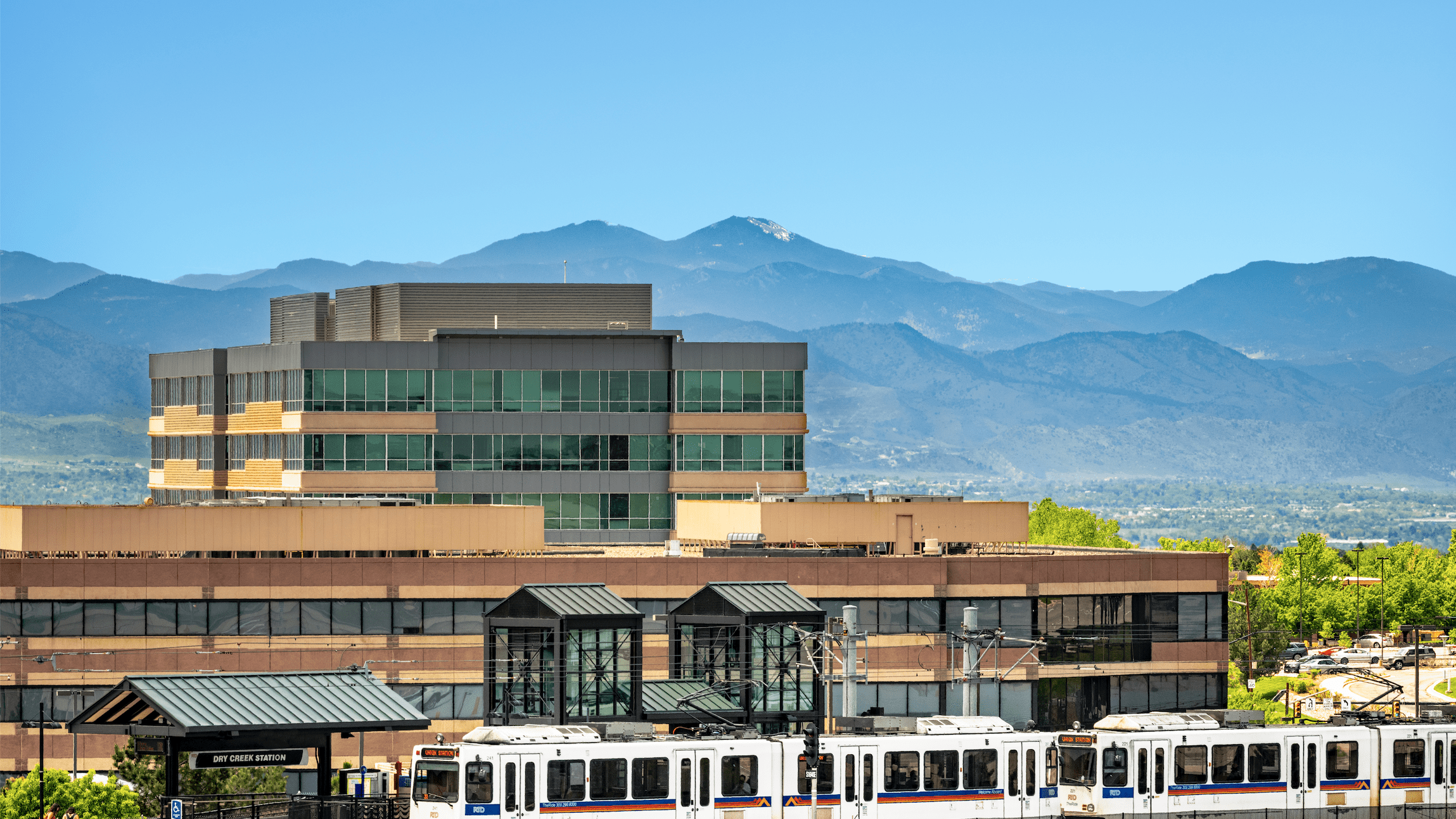Denver South held its bi-monthly partnership meeting April 7th, hosting the largest in-person audience since early 2020. Both the topic—Trends in Commercial Real Estate—and the speakers—Andrew Knudtsen of Economic & Planning Systems and Rodney Milton of the Urban Land Institute (ULI) of Colorado—were especially pertinent, as organizations navigate the return to a new normal following the pandemic.
Denver South board member Buz Kobelel introduced Andrew Knudtsen, Principal of Economic & Planning Systems, who spoke on the emerging trends his firm is watching in commercial real estate for 2022. He noted that, overall, the industry feels better about the future compared to last year, with many KPIs pointing towards a V-shaped recovery. He did note, however, that there are uncertainties organizations will have to grapple with in 2022, most notably around the growing costs of construction, labor, and housing costs.
He then shifted gears to highlight the growing data set that indicates we are not going back to a pre-pandemic way of life. Many categories, including dining, travel, and entertainment are back to pre-pandemic levels, but workplace and office space are lagging, not yet having reached 50% of the pre-pandemic norm. Employees are seeking a new work/life balance and options for work settings; employers need to be aware of these shifts to recruit and retain top talent. Knudsten emphasized that this shift creates a unique opportunity for Denver South to redefine and broaden its comparative advantages, as we try to define what our new, post-pandemic “normal” looks like.
Rodney Milton, Executive Director of ULI Colorado, then kicked off his presentation by highlighting the ULI’s 14,000 members who have joined together to solve problems. He emphasized that their membership base is uniquely positioned to make an impact with their collective experience in shaping cities and making places, and that their organization’s strength is its diversity in background and experience. Milton noted the importance of being intentionally collaborative, and highlighted how ULI Colorado implements this approach to address problems as varied as housing attainability, infrastructure spending, and retrofitting cityscapes.
ULI Colorado’s Strategic priorities include reimagining healthy urban living, addressing mobility and transportation challenges, and promoting equitable growth and positive community change. Their primary approach to addressing these strategic priorities is through its wide range of committees, including open focus area committees, regionally focused committees, and young leader committees. ULI Colorado also offers advisory services, programming for senior leaders, and opportunities for their members to access online resources and reports focused on their core initiatives.


